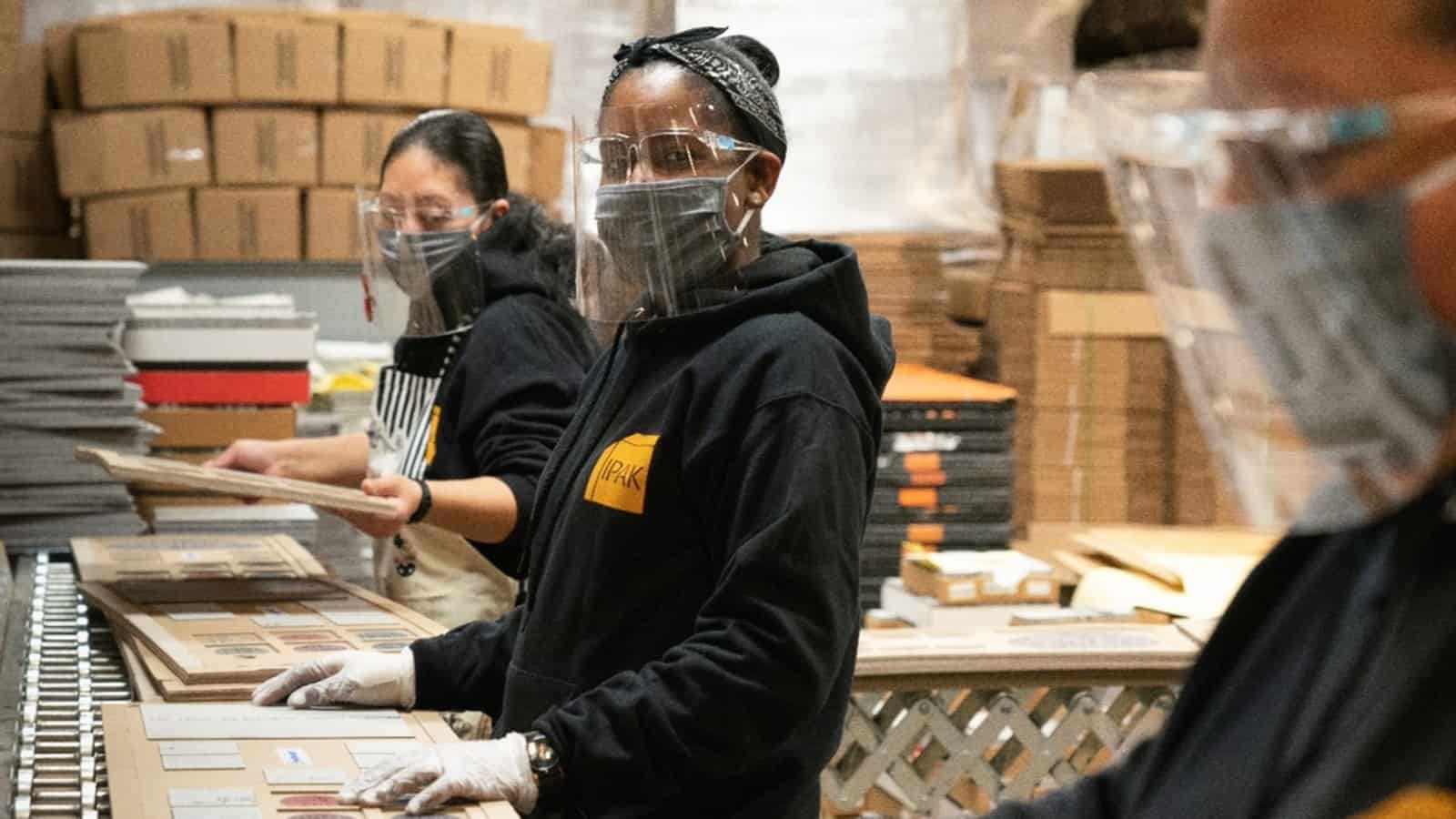How IPAK’s Diversity Sustained It Through COVID-19

When COVID-19 swept through Camden, New Jersey, it hit the kit and packaging manufacturer IPAK very hard. The majority of IPAK’s nearly 100 employees are women and people from underserved communities, and like many other similarly situated groups, they suffered from particularly high case rates and economic disruption. But it was the company’s long commitment to diversity, equity and inclusion that helped it get through this global disaster—and even allowed it to thrive.
We spoke to IPAK CEO Karen Primak about all the company did to safeguard its employees and serve its customers. Here’s what she told us.
Keeping employees safe: The early days of the pandemic were terrible; the company had four employees in the hospital on respirators “right from the beginning,” says Primak. But IPAK responded swiftly and comprehensively:
- IPAK created an extensive COVID-19 action plan to prepare, inform and assist employees. This included an “ambassador” program so team members had a point of contact to ask about their virus-related concerns and receive answers and resources in the five different languages that employees speak.
- The company rearranged schedules to allow workers without childcare to be home when needed. Managers spent an hour or two every morning discussing how they could accommodate everyone.
- IPAK stayed current with the latest science and data, so that it could react quickly to the fast-changing pandemic. The company instituted an evolving set of daily cleaning protocols, social distancing measures, remote work provisions, masking and face shield requirements, vaccine information sessions and regular COVID-19 testing.
All these measures allowed IPAK to remain open and continue to deliver high-quality solutions to its customers throughout the pandemic. And here’s one last impressive detail: “We didn’t furlough or lay off anyone,” said Primak. “Despite all the craziness and the disproportionate impact on our employees and revenue, we remained committed to employing our workforce during this awful time.”
The “secret weapon”: How did IPAK cultivate the flexibility and dedication necessary to get through a global pandemic?
- “Diversity, equity and inclusion have been our secret weapon,” Primak said. “If you hire people like you, all you get back is you. IPAK is equipped with a range of voices and perspectives, which helps us innovate and creatively solve problems. Our commitment to put employees first and understand their needs allowed us to come together and stay operational during such a difficult time.”
Success during upheaval: IPAK also went above and beyond for its clients, including nonprofit educational-content provider ACT, maker of the well-known college-entrance exam, whose supply chain was upended by COVID-19.
- ACT was faced with shipping disruptions, shuttered test centers, constantly changing local conditions and testing center capacity constraints. It needed an agile partner who would be able to move quickly, adjust schedules and innovate in real time.
- As a result, ACT pivoted early in the pandemic and massively expanded its contract with IPAK to include the handling of secure paper-based processing, which includes creating kits and manufacturing and distributing the ACT test.
- Amid all this disruption and change, IPAK stepped up. Its staff worked tirelessly with ACT to deliver more than 2 million college-entrance exams during the pandemic.
“We worked nights and weekends and even hand-delivered some test booklets to make sure they arrived on time,” said Primak.
A great partnership: “We were the vendor that was willing to make huge and necessary changes alongside ACT during the pandemic so that many deserving students could take the ACT and benefit from the opportunities afforded by their hard work,” Primak said.
- “IPAK asked so many questions about our organization and offered a unique process optimization perspective,” said ACT CEO Janet Godwin. “It was clear they had deep knowledge of the education marketplace and cared about our mission—not just their bottom line. IPAK knocked its first assignment out of the park, catalyzing ACT to outsource additional critical programs to IPAK.”
NAM involvement: Primak also credits the NAM’s work with Congress and the administration with helping IPAK survive and succeed. She is grateful for government programs such as the employee retention tax credits, economic injury disaster loans and Paycheck Protection Program loans, which the NAM advocated for, and said that without such help, the company “wouldn’t be here.”
The last word: “Helping people achieve success and ensure equity, access and opportunity for all” is ACT’s mission, said Primak. It’s that type of commitment to equity and inclusion that also motivates IPAK’s whole team, in good times and in pandemics.
The NAM and The Manufacturing Institute are committed to increasing diversity and inclusion in the manufacturing industry. Visit the NAM Pledge for Action page to make your own commitment today.
